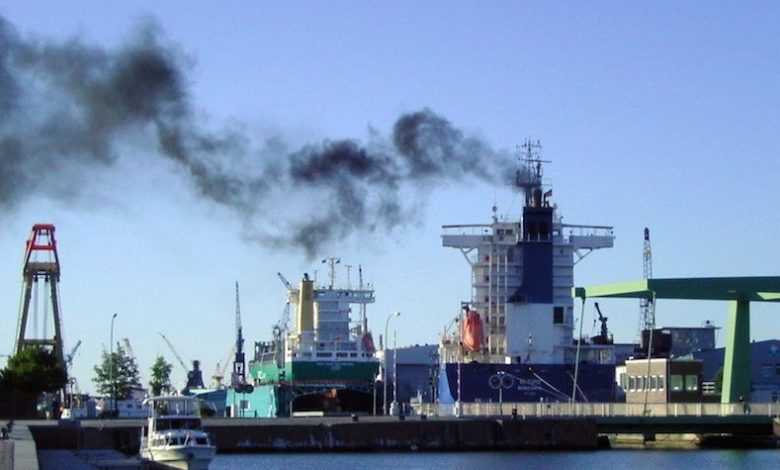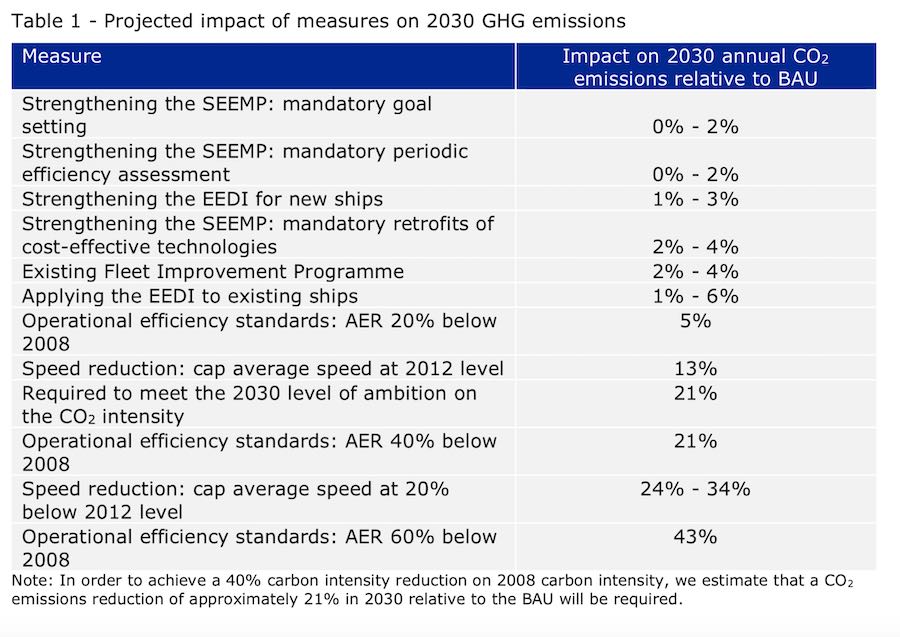European Commission study backs three short-term measures to speed up shipping’s decarbonisation

Ahead of this month’s Marine Environment Protection Committee (MEPC) meeting at the International Maritime Organization (IMO) in London, a study commissioned by the European Commission has suggested there are just three ways the current fleet can meet 2030 CO2 emissions targets.
The study, researched by consultants CE Delft and London’s University Maritime Advisory Services (UMAS), states that only operational efficiency rules, speed measures, or shaft power limitations can slash emissions by 40% compared to 2008 levels in 11 years’ time, as stipulated in IMO’s roadmap to decarbonisation.
“Both speed limits and operational efficiency standards will require most ships to reduce their speed if the 2030 CO2-intensity ambition is to be met. There is a difference, however. At equivalent CO2 reduction outcomes, operational efficiency standards allow ships more ways to comply than to reduce speed: improving the design efficiency, switching fuels, improving the management or logistics of the ship, et cetera,” the study notes.
The study also claims that the International Chamber of Shipping (ICS) and BIMCO’s voluntary action proposal would fail to meet IMO’s 2030 goal.
Splash will be reporting from MEPC, starting at the intersessional meeting tomorrow.

